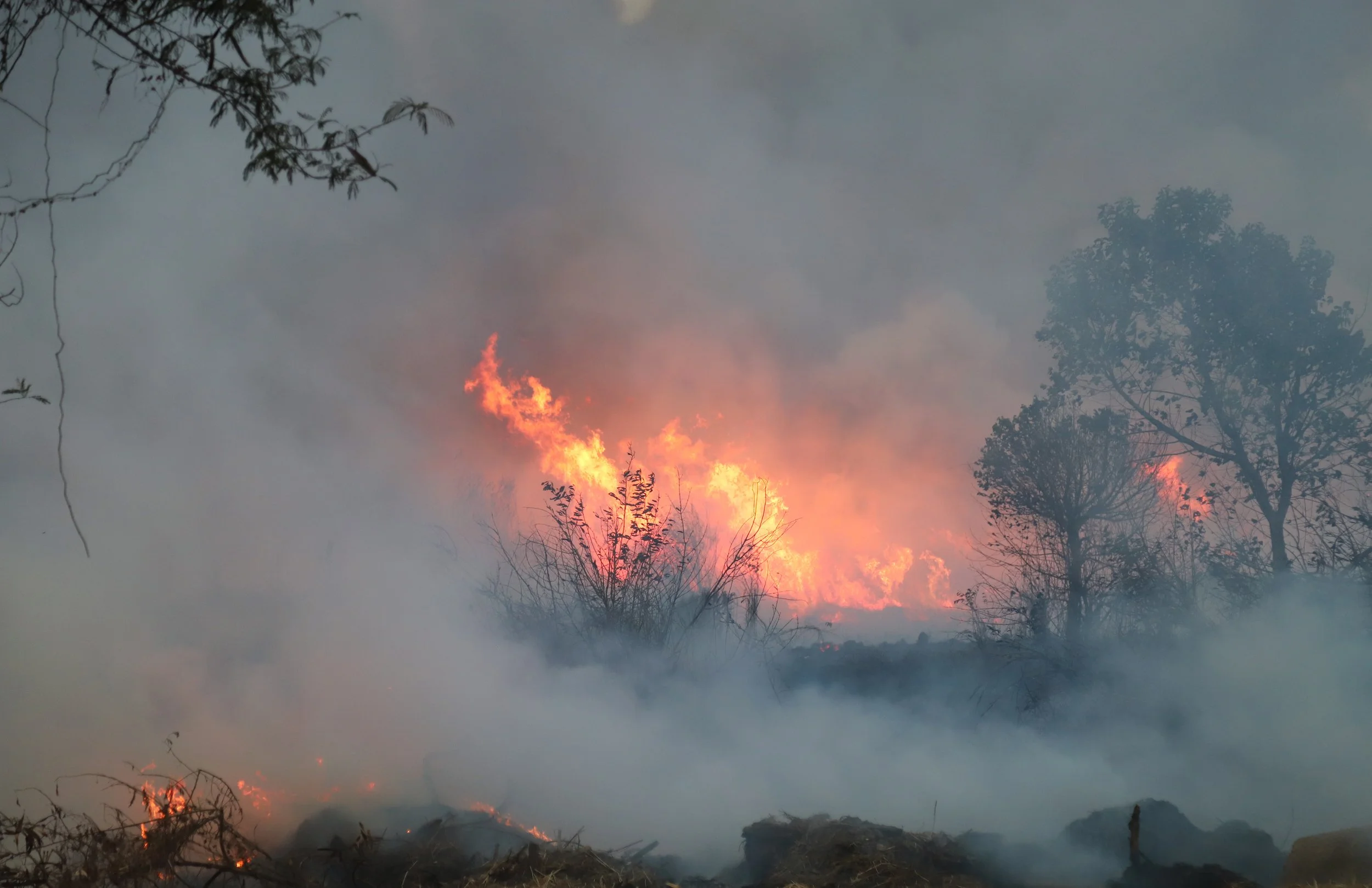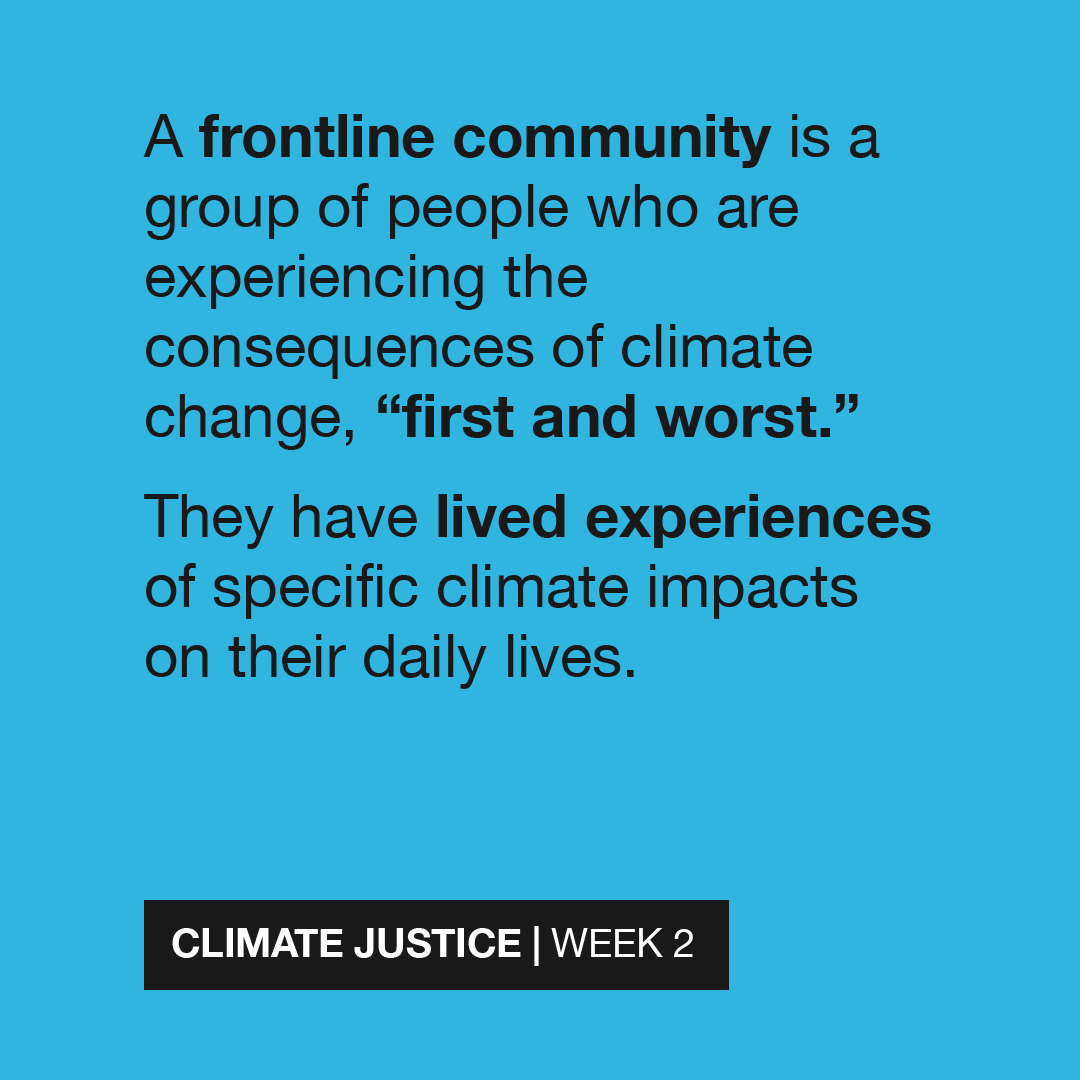Let's Talk About #ClimateJustice
This Earth Day, it's time to take a serious look at climate justice. As a Certified B Corp, Fors Marsh Group has pledged to make a positive impact as stakeholders in global economic, racial, and climate justice.
What is Climate Justice?
When we refer to "climate justice," we're referring to the idea that it is the historical and social responsibility of corporations and the wealthy to address climate change. Across the globe, the climate crisis has and will continue to have a disproportionate effect on those who are least responsible for it.
Mary Robinson, author of Climate Justice: Hope, Resilience, and the Fight for a Sustainable Future, says that climate injustice "insists on a shift from a discourse on greenhouse gases and melting ice caps into a civil rights movement with the people and communities most vulnerable to climate impacts at its heart."
it is the most marginalized communities that suffer the most dire consequences.
Who Does Climate Justice Impact?
Although none of us can escape the dangers of climate change, it is often the most marginalized communities that suffer the most dire consequences. These frontline communities experience the ramifications of climate change "first and worst" in their daily lives.
Black communities "tend to live where there is greater exposure to air pollution" due to decades of racial segregation, according to a study by the American Lung Association.
Linguistically isolated households and neighborhoods, particularly immigrant Chinese American ones, may encounter language barriers in receiving early warnings or updates on storms, power outages, and other disasters.
Indigenous populations hold critical knowledge systems and practices that can be key to achieving sustainability, but Native voices have systemically been silenced and marginalized, and their access to land and resources has been exploited by non-Native industries.
Elderly and disabled populations often live with chronic health conditions that can be made worse by the effects of climate change. For example, mold growth or excessive sun and heat exposure can be especially harmful to those managing persistent health conditions. Additionally, these communities may live in subsidized housing, often built on flood plains, and have few resources to evacuate in times of emergency. Similarly, many people living in rural areas lack the financial means to relocate safely during ever-worsening wildfires. Nor do they have adequate access to care for the resulting long-term side effects the fires can cause—such as asthma, aggravated respiratory symptoms, and mental trauma.
How Are We Addressing Climate Justice?
We recognize that business and industry are the leading contributors to climate change and, as such, must take on the responsibility of addressing climate justice. It's up to us to work together to transform not only how we view our planet, but everyone living on it. Fors Marsh Group is a Climate Neutral Certified organization, on track to becoming a net-zero company by 2030. In 2021, we recognized that our climate was in crisis and committed to cutting our Scope 1 and 2 emissions by half.
FMG employees can use voluntary time off (VTO) to give back to their communities in ways that are meaningful to them. During Earth Month, several FMG employees participated in efforts led by the FMG Planeteers to advocate for climate justice, equality, and sustainability. From urban riverway cleanups to remote area medical support clinics, FMG staff helped make the earth a little better this Earth Month.
If you're interested in learning more about life at FMG and our people-first culture, please visit our careers page. To read even more about FMG's commitment to a better world, read our report, A Path to Lasting Change.

